Human Flourishing
Insights from a Trauma Healing Workshop inside Dzaleka Refugee Camp We long to see people flourishing in community using the languages they value most. That’s… Read More »Human Flourishing
Insights from a Trauma Healing Workshop inside Dzaleka Refugee Camp We long to see people flourishing in community using the languages they value most. That’s… Read More »Human Flourishing

From dial-up to high-speed internet, the world around us constantly transforms as innovations arise. At Faith Comes By Hearing (FCBH), this need for constant innovation is ever present. More than twenty years ago, Faith Comes By Hearing dedicated the ministry to share Audio Bibles on cassette tapes. But the world began to change, and new ideas were needed.
In 2000, FCBH found that cassette tapes were not practical for the millions of people around the world without electricity. Faith Comes By Hearing saw a need for a new, solar-powered player restricting no one from God’s Word in audio. This new machine would have to be a dedicated playback unit—it would play God’s Word and nothing else. But while this new gadget seemed incredible on paper, the ministry struggled with how to produce such a complex device.
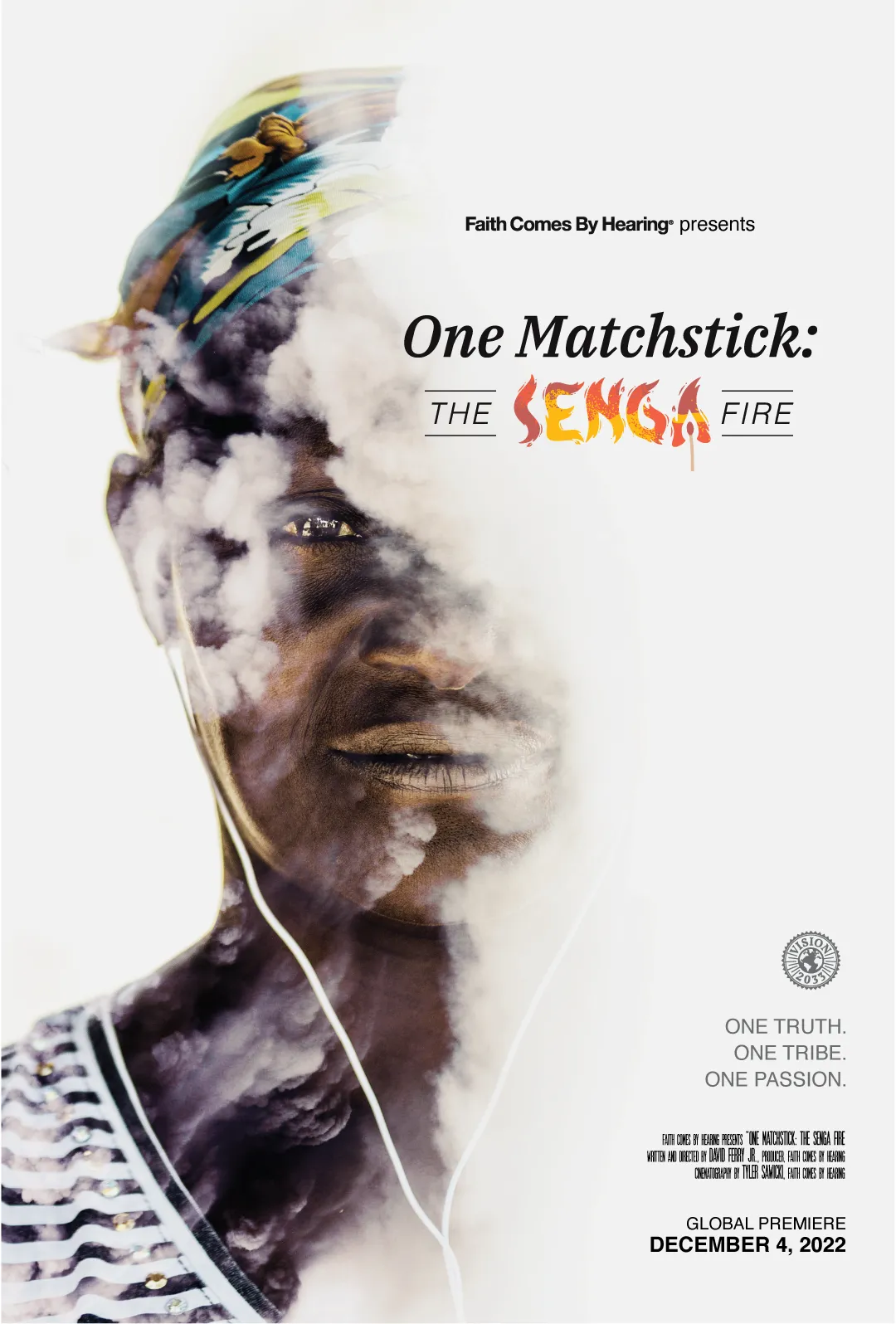
“When we work together with our different gifts, we can say, ‘God has accomplished this.'”
Rev. Katete Jackson Jones, BiLTA, Zambia
One year ago, Faith Comes By Hearing‘s video team set out to capture an incredible story of community transformation through God’s Word in audio. Now, the organization is ready to share that story with the world.
One Matchstick: The Senga Fire, tells the incredible true story of the Senga of Zambia receiving the Bible in their language for the first time in the tribe’s 2,000- year history.
Prior to this monumental breakthrough, no written or oral translation of Scripture existed in the Senga’s mother tongue. For years, interaction with the Bible in any meaningful way required the Senga to learn the languages of neighboring tribes. Though they desired to know and understand the Bible, their tribe was deemed too small to receive a written translation.

Pencil Bible is a beautifully simple Bible app for journaling, crafting notes, and visually capturing scripture. ✎ It doesn’t matter if you’re a notetaker, artist, prayer warrior, journaler, or just a daily reader. Pencil Bible helps you experience the Bible on a whole new level.
The Scripture Engagement Guide (SE Guide for short) is designed to help you understand your situation and decide how to encourage your people to use the Bible. It is a web-based tool for local communities to explore a variety of topics to consider their needs, then find the resources to help them get there. It empowers communities to make informed and sustainable decisions for their future. This is more about the process than the products that may be created or used along the way. We believe that working through the journey with others will benefit your community by helping you understand your situation better. Then, you will be able to choose wisely from the many scripture engagement resources on this site or design your own special SE activities. Your answers to the questions in the Journey and the list of resources here can be used again and again to find new ways to hear or read the Bible.
The Bible has the distinction of being translated and read in the largest number of languages across the world. Technology has come to the aid to present the Word to all people groups speaking diverse languages. The divine plan of God behind such developments can be understood when we examine the recent historical account. The technological advancements are making major contributions to the fulfillment of the last command and associated Bible translation activities. The relevance of technology in mission activities in the 21st century is highly significant. In order to share the gospel as well as for church activities, most churches and mission organizations are extensively using digital technology. In today’s digital world, social media serves as a powerful communication channel to reach out across the world with great speed. To present the Word to a larger group, digital media takes precedence in the present time. The emergence of the Apple store on 10 July 2008 and the Android market (Google Play store) on 22 October 2008 marked a paradigm shift in receiving the Word at our fingertips. Read More »The Word at Our Fingertips
EMDC webinar on what Deditos offers your project, Wednesday, 19 of October
Children fascinated and filled with hope as they come into contact with God’s Word.
Everything was geared for adults
Children need to know God from the time they are small, but it can be hard to share Bible stories with them in a way that is captivating AND true to Scripture.
Translating the Bible into Action has become a key resource for anyone interested in helping people discover the relevance of the Bible in their lives, especially in terms of newer translations in minority languages. This new edition includes new chapters and updates that take into account new opportunities and changes in technology in the last 10-15 years. Written in an accessible way for use with churches, most chapters can be introduced and explored in an hour or two. The book provides recommendations and links to further articles, many of which are available on https://scripture-engagement.org/ and https://www.ijfm.org/
Church websites are often quite good at telling people about service times, linking to sermons, and even giving information on how to hire rooms in the building. Sadly, in my experience not many are very good at helping people access the Bible. Perhaps they assume that anyone who can find the church website can also search online and find a Bible.
But perhaps this is a missed opportunity to highlight that the Bible is essential to the church, and that the church leaders actually do want people to read it for themselves.
Medical Outreach for Scripture Engagement Sustainability (MOSES): A Case Study on the MOSES methodology in South Asia
Submission for the 2021 Bible Translation Conference
After decades of tireless sowing by pioneers around the globe, national movements to translate the Scriptures into non-dominant language groups have truly sprung to life in the Global South. With hundreds of translations being published in the last twenty years, recent data shows that many of these Bibles do not have much of an audience. In many cases, the problem has become people-less Bibles rather than Bible-less peoples. Our team was convinced that the remedy to the lack of demand for the book is to introduce people to the Author. The Medical Outreach for Scripture Engagement and Spiritual growth (MOSES) approach adapts the Leader Source spiritual formation program design methodology to working with local stakeholders to build bridges to the Bible through God encounters that meet the felt needs of the community.

All of effective Eurasian Kingdom initiatives are built on two key elements: 1) Effective Communications 2) Effective Collaboration – How we work together. Long-time EMDC champion, Phill Butler, is an acknowledged expert in these fields. His book, Well Connected, the global “bible” of partnership and network development is now in a dozen languages. Phill has just completed a great new resource website with 140+ articles and 30+ videos on these topics.


Here are the latest resources on the Scripture Engagement website:
Scripture Engagement Research Initiative< Mar 03, 2022 10:53 am
A multiagency research program of Dallas International University

Dallas International University (DIU), in collaboration with SIL’s Pike Center for Integrative Scholarship, has launched the Scripture Engagement Research Initiative (SERI). The SERI program hosts a series of large grant-funded Scripture Engagement research projects. Research topics are proposed both by participants and by the SERI leadership. Participants can serve for short periods of time or as part of a longer-term assignment.
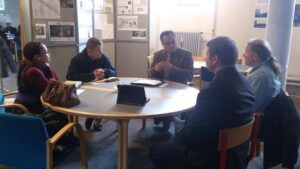 (photo credit: esperanzatolentino.wordpress.com)
(photo credit: esperanzatolentino.wordpress.com)
Which kind of translations make more impact?
This is a good question. It is also a complex issue and more than one set of parameters comes into play. That is, there’s more going on here than “literal vs meaning-based.” Long ago David Landin did research in Bolivia to see which indigenous Bibles were being used there 10 years after completion. Answer: the ones with the hymns in the back. And in those, it was the hymns that were being used, not the translations themselves.
One key factor that has proven true over the years is whether or not the local church leaders (pastors, evangelists, teachers) choose to use a new translation or not. If the local and regional church leaders do not show support for a translation, it will likely fade into obscurity. This is why nowadays many projects begin by contacting local and regional, even national church and denominational leadership in order to hear from them what kind of translation is most desired by them for their people. And continued conversation with these leaders is fostered all along the life of the translation project.
Global Missional AI Summit The Global Missional AI Summit brings together mission-minded workers, Bible translators, and technology practitioners to explore the value artificial intelligence (AI)… Read More »Global Missional AI Summit
Join us at the Storytelling Café at EMDC Online! I recently went to the massage therapist because my neck was hurting and all I had on my mind… Read More »Bible Storytelling Cafe.
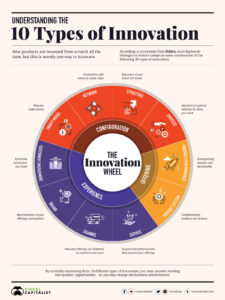
Imagine that someone was to say to you, “I’m involved in an innovative project.” What assumptions would you make about the project? Take a moment to be in that conversation and truly consider my question.
The word “innovative” will tip you off that they are working on something new. You may also assume that there is a degree of risk or uncertainty in the project’s outcome because it is new. It is also likely that you assume that the project involves some new technology, or an existing technology applied to a new domain.
It’s that last assumption that I would like to focus on for a few minutes. Why is it that we tend to associate innovation with technology? My guess is that we are simply used to seeing the two go hand in hand in our 21st Century world. There have been so many astounding advances in technology in the past 20 years that our brains are almost conditioned to join the two concepts together.

When Google launched Chrome they created a comic book to explain Google Chrome. After the U.S. government spent millions of dollars compiling the 9/11 Commission Report they had a problem – no one was reading the voluminous text. That is, until it came out as a graphic novel and catapulted to best-seller lists and the front of USA Today. Comics, it turns out, can be the language of choice to explain stories of significance.
Below and countless other letters and e-mails we receive attest to the fact that people need to understand the Bible. That is why the Comic Bible Society focuses on serializing and explain in a systematic, chronological and visual manner the whole testimony of the Scripture.
Read More »The Bible Explained
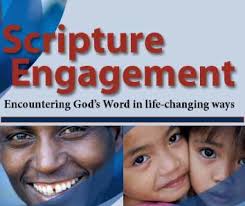
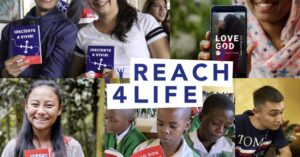
The Choice is Yours
Reach4Life is a comprehensive, Christian life skills program for young people — with a particular focus on identity, sexuality, and relationships — that brings about holistic spiritual and behavioural transformation. It is based on the idea that real comprehensive behavioral change is only possible once there is a spiritual revolution in the hearts and minds of young people.
Reach4Life is designed to inspire youth to plug into a relationship with God, the raw power of the Bible, the wisdom of saving lovemaking for marriage, the support of a local church, the beauty of a transformed life, and the opportunity to change the world one person at a time.